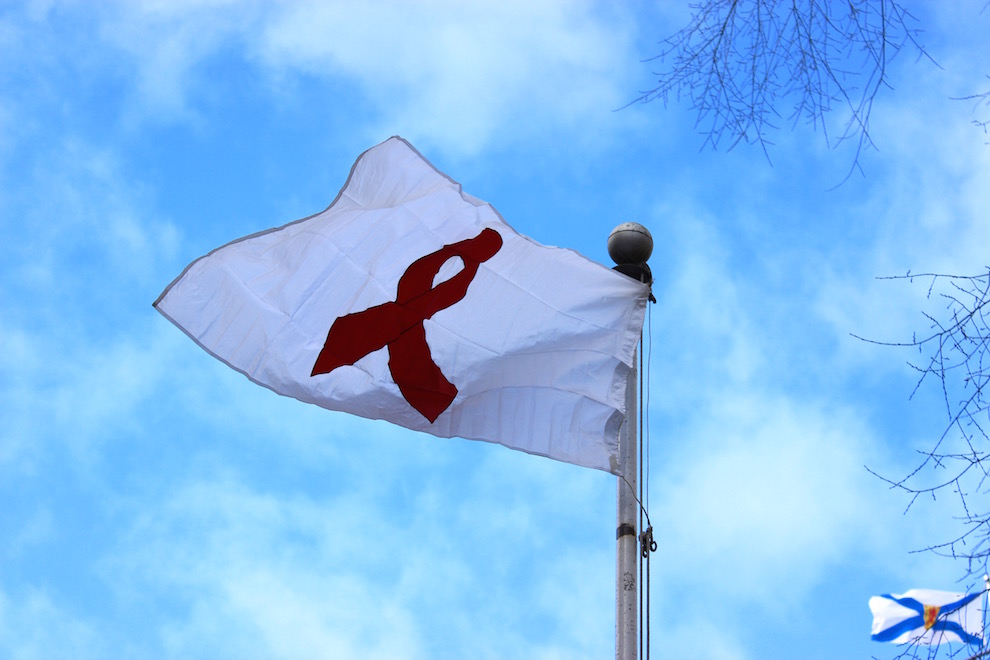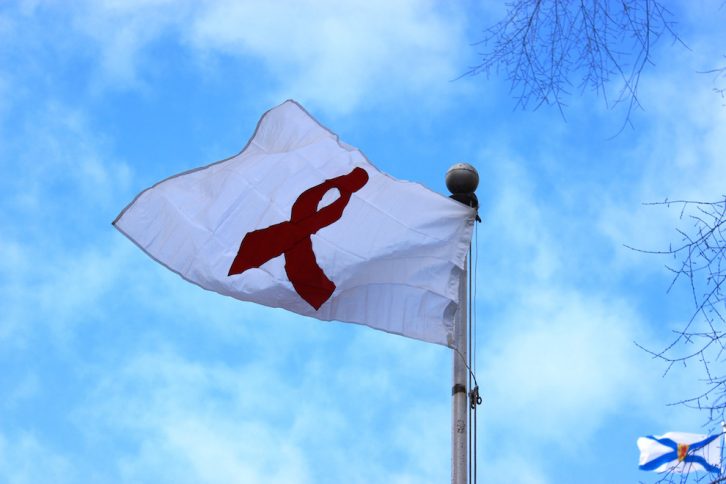Health
Flag raised to launch HIV/AIDS Awareness week
In Nova Scotia, 194 people were diagnosed with HIV between 2002 and 2011

caption
Red-flag at the Province House in Halifax.
caption
Red-flag to support people living with HIV/AIDS at the Province House in Halifax.A red ribbon flag was raised Thursday at Province House to honour people living with HIV and AIDS as part of HIV/AIDS Awareness Week.
“Events like today help weaken the stigma that surrounds HIV and AIDS,” said Joyce Treen, MLA, for Cole Harbour – Eastern Passage, during the event.
The flag raising was the first in a series of events, which run until World AIDS Day on Dec. 1. This year’s theme for HIV/AIDS Awareness Week is Hands Up for #HIVPrevention.
Treen and Michelle Proctor-Simms, the director of the Nova Scotia Advisory Commission on AIDS (NSACA), led the ceremony.
According to the commission, more than 75,000 Canadians are living with HIV or AIDS and approximately 21 per cent of Canadians are not aware they are infected.
HIV (human immunodeficiency virus) is a lifelong virus that can lead to AIDS (acquired immunodeficiency syndrome). HIV attacks the body’s immune system and the CD4 cells that help the fight infection. The only way for a person to know if they are HIV positive is to get tested. While there is no cure for HIV, there are treatments that can control it.
AIDS is the final step of an HIV infection and occurs when the immune system is badly damaged from the loss of CD4 cells.
In Nova Scotia, 194 people were diagnosed with HIV between 2002 and 2011. Of this number, 82.5 per cent are male and the median age is 41.
[idealimageslider id=”19333″]
Proctor-Simms encourages the public to talk to their doctor about HIV/AIDS and any other blood-borne infections.
“If you are HIV positive, there are very effective treatments for this now,” she said in an interview. “Early diagnoses is the key to living well with HIV; there’s a lot of good news.”
She adds that it’s important to talk openly about the subject and use positive language to end the stigma surrounding the disease.
“Language has a way of impacting people’s ways of thinking about these issues,” she said. “I always cringe a little when I hear people say ‘AIDS victim.’ It’s kind of a hangover from another era.”
After the ceremony, Treen said she’s even more focused on HIV/AIDS issues in Nova Scotia now.
“Just by doing it makes you feel different,” she said after the ceremony. “The fact that I raised that flag and stuff will draw more of my attention now.”
For more information about HIV/AIDS and AIDS awareness week visit the NSACA website.
